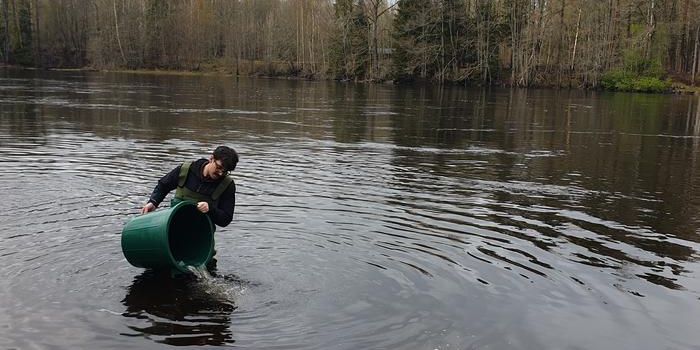Ever since Europeans first began fishing in the Gulf of Maine centuries ago, cod has been a staple for fishermen and the vast populations that ate them. Cod has also been one of the major species in the Gulf of Maine ecosystem. Ever since the 1970s, however, cod stocks of cod have been declining. Today, they’re in danger of collapsing all together. The current cod population is somewhere between three and four percent of sustainable levels. Even though the US and Canadian governments have been imposing more and more stringent quotas on the amounts of cod fishermen are allowed to catch, the rapid decline in the cod populations has not been slowing down, much to the surprise and dismay of both fishermen and fisheries managers. A new report in the journal Science explains why. The report shows that the collapse in cod populations is due, in large part to rapid warming of the Gulf of Maine, which has been warming 99 percent faster than anywhere else in the world.

The report details the causes of the Gulf of Maine’s rapid warming which are climate oscillations in the Atlantic and the Pacific and a change in the position of the Gulf Stream.
Andrew Pershing, Chief Scientific Officer of the Gulf of Maine Research Institute (GMRI) and lead author of the study explains, that even though "Managers kept reducing quotas, … the cod population kept declining. … (but) It turns out that warming waters were making the Gulf of Maine less hospitable for cod, and the management response was too slow to keep up with the changes."
Cod is a species that is specifically evolved for cold water. Pershing along with scientists from GMRI, the University of Maine, Stony Brook University, the Bigelow Laboratory for Ocean Sciences, and NOAA's Earth System Research Laboratory have found that cod don’t simply prefer cold water, the need it for normal functioning. Pershing and his group found that as water temperatures rise, there is a significant reduction in the number of fry produced by spawning female cod, and that warming waters have led to fewer of those fry surviving into adulthood.
The models managers have been using over the last decade to set the quotas for cod have unfortunately have been incomplete, in that none of them took the impact of rising water temperatures into account. So, even though cod quotas have kept getting more stringent they have always been too high. Even though fishermen stayed within their quotas, unknowingly they were still taking more fish than could be sustained by the ever-shrinking population. Even though quotas were being enforced, the cod stocks did not rebound, which led to the quotas becoming more and more restrictive. “This creates a frustrating situation that contributes to mistrust between fishermen, scientists, and managers," Pershing says. "The first step toward adapting fisheries to a changing climate is recognizing that warming impacts fish populations."
So, with this new knowledge about the importance of including ocean temperature change in decisions about fishery management, will managers be able to adjust quotas effectively and finally bring levels of cod back to historically healthy levels? According to the report, recovery of cod in the Gulf of Maine, if it can happen, will depend on sound fishery management, but also on future ocean temperatures. It may be that, as the ocean warms, the future Gulf of Maine will not be able to support large numbers of cod, and that fishermen and the general public may simply have to get used to a smaller and smaller cod population and a smaller and smaller fishery.
Source:
Phys.org









